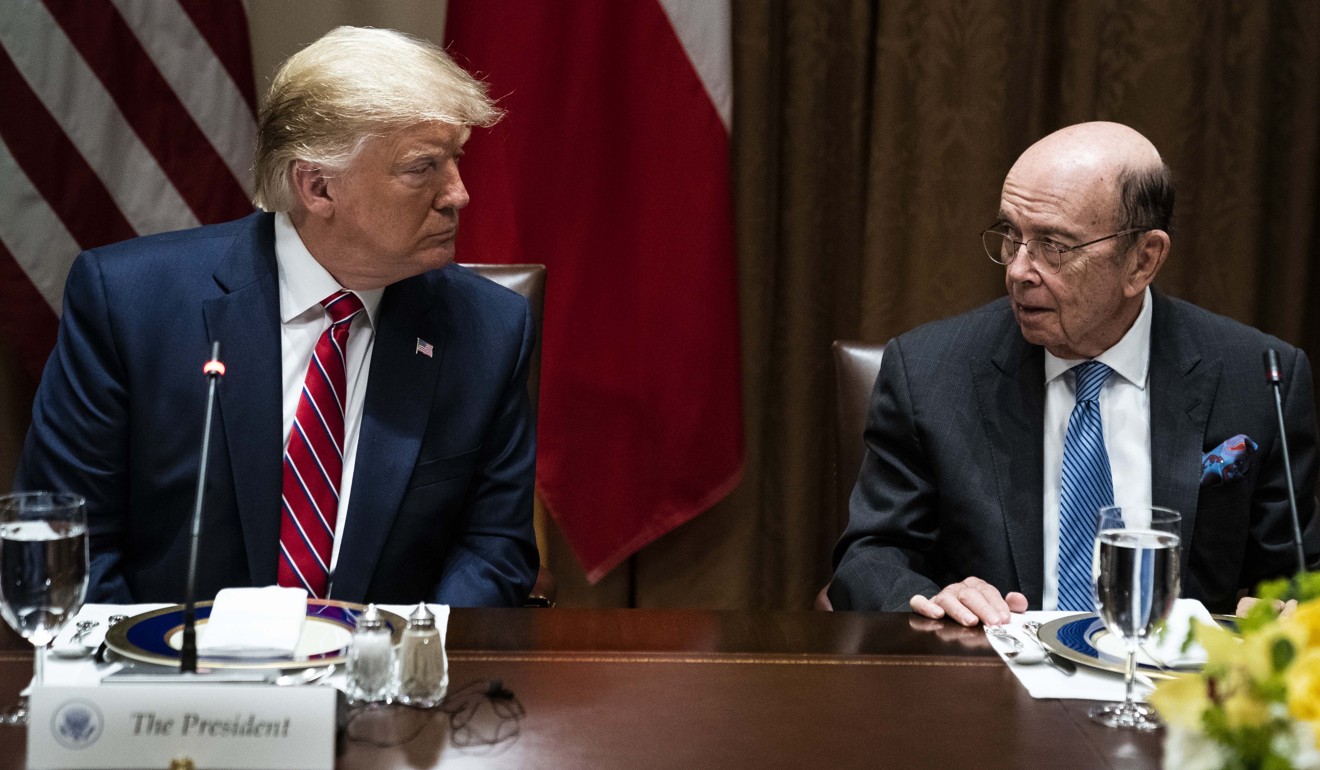- Washington has already turned to private capital to spur fifth-generation wireless development, federal officials tell Commerce Department’s BIS 2019 forum
- The threat China poses to US national security and competitiveness in the telecoms sector dominates the day’s discussion
On July 11, 2019, Robert Delaney and Owen Churchill write on South China Morning Post:
America’s free-enterprise structure will prevail over China, where consumers are held “hostage”, in the race for global dominance of 5G telecommunications technology.
That was the message from Washington on Wednesday, delivered by US defence and commerce officials at an annual conference on export controls organised by the Commerce Department’s Bureau of Industry and Security (BIS). They said the US government was already moving to “leverage” private capital to speed up America’s development of 5G solutions.
“Repeatedly our own US companies have come back … and explained that they were lured into China with promises of accessing a 1.4 billion consumer market only to have technology transfer result in competition in that very same technology area,” said David Stapleton, the US Defence Department’s acting deputy assistant secretary for industrial policy.
“They were later forced out of that market and are now competing with those same Chinese companies back in America.”

Fifth-generation wireless networks are expected to revolutionise everything from the internet of things to autonomous driving, smart cities and virtual reality. Photo: AFPShare:
The threat China poses to US national security and corporate competitiveness in the telecoms sector globally dominated Wednesday’s discussion at the three-day BIS 2019 conference.
Since last year’s edition, Congress passed a law strengthening the ability of the Committee on Foreign Investment in the United States (CFIUS) to scrutinise and block foreign direct investment, a move prompted by concern about China’s acquisition of American technology.
In May, US President Donald Trump issued an executive order demanding action to counter foreign adversaries that are exploiting vulnerabilities in the information and communications technology and services sector. On the same day, the Commerce Department placed Huawei and 68 affiliates on its Entity List, which prohibited the sale of US technology to the Chinese smartphone maker.
The order gives the Commerce Department until mid-October to establish rules to determine which countries should be deemed “foreign adversaries” and which telecoms products would be blocked from the US market if they are produced in those countries.
In a keynote address at the conference on Tuesday, Commerce Secretary Wilbur Ross said Washington would allow American companies to sell technology to Huawei where there is no threat to US national security.
In the meantime, Stapleton and the Commerce Department’s Earl Comstock said the US government would encourage greater cooperation with companies in Japan, Mexico, India and Europe to develop and manufacture 5G equipment and make up for time lost by US producers who had tried to expand in China.

US President Donald Trump confers with Commerce Secretary Wilbur Ross last month. Photo: Jabin Botsford/Washington PostShare:
Foreign tech companies in China “have ultimately been displaced because once the Chinese companies bring in the capability that’s organic to their nation, they have 1.4 billion consumers who will buy their products and then expand their revenues, increase their research and development, and then expand into international markets”, said Comstock, the Commerce Department’s director of policy and strategic planning.
China’s ability to quickly develop telecoms products for the international market is greater than Japan’s in previous decades, he added.
“The key difference is that [Japan] did not have a 1.4 billion market to hold hostage,” he said.
China’s support, financial and otherwise, for its home-grown tech companies requires a response from Washington in the form of “partnerships with venture capital, private equity and asset management” to spur the development of 5G technology, Stapleton said.
“We’re looking at private sector capital and how we can better leverage up those capabilities,” Stapleton said.
“The US government did US$125 billion in [research and development] last year writ large. Right now there’s at least US$300 billion in dry powder sitting on Wall Street that is ready to be deployed rather quickly,” he added.
“We are undertaking a number of initiatives to accelerate our capabilities in that space.”
The advancement of 5G technology is a high-priority strategy for the Chinese government, with objectives surrounding the development of advanced telecommunications featuring in both the current economic five-year plan and the “Made in China 2025” industrial strategy.
The plan, a blueprint for government subsidy of hi-tech industries, states that 5G technology is one of the areas in which China will achieve breakthroughs and find itself ahead of global competition.
While Beijing has recently sought to play down the strategy in the face of US opposition, the strategy’s architect, Premier Li Keqiang, made it clear in his March address to China’s legislature that many of its objectives remained intact, including the advancement of next-generation information technology.
Beijing has also vowed to increase its support and devote financial resources to tech firms in the wake of Washington’s recent action to block sales to Huawei from US companies.
While little is known about the extent to which state support for advances in 5G technology translates into financial handouts, the FBI has said that Beijing is actively subsidising Huawei, which its CEO Ren Zhengfei has denied.
A recent report by Agence France-Presse found evidence that Huawei has received 11 billion yuan (US$1.6 billion) in handouts over the past decade, more than half of which came in the form of “unconditional government grants” in recognition of its contributions to hi-tech development in China.
Gary Reber Comments:

